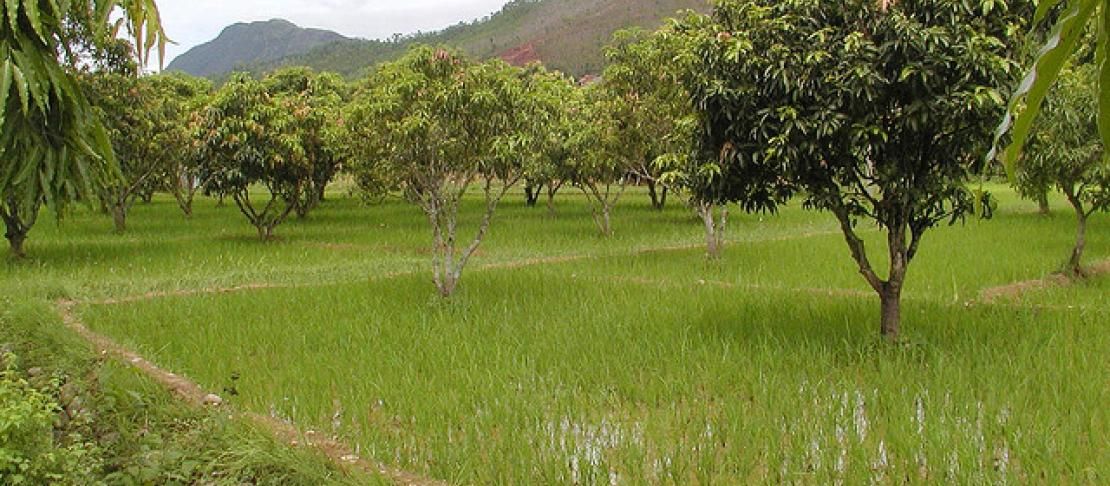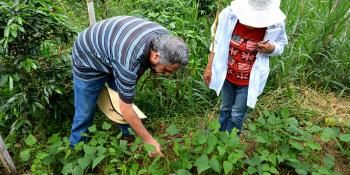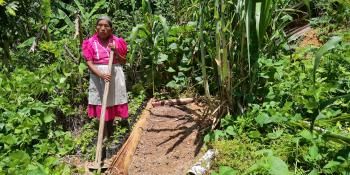How growing mangoes can make a difference in a farmer's life

Video showcasing the benefits from 'agroforestry'.
Indian farmer Om Prakash Shukul began planting trees on his farm after following an awareness programme on agroforestry in his community. He was more than happy to talk about his fruit tree-planting activities during an interview:
“I earn from the crop as well as by selling mangoes. So far, I am very happy with the results,” he says in the below video.
Om Prakash hopes to earn an income from the mangoes for the next few years, and has in addition planted guava as extra security, should his crops fail. By diversifying his farm produce and adopting this 'climate-smart' intervention, he feels better prepared to cope with erratic weather events and the challenges from the changing climate.
Learn more about Om Prakash in this video showcasing our Climate-Smart Village activities in Bihar, India:
It might take time - but agroforestry pays off!
Agroforestry is an incredible climate-smart intervention. In involves planting trees, around the farm or between crops.
While the immediate costs may be high, and the time to reap the benefits may seem long, the wait does pay off.
Interspersing crop plantations with trees can lead to better ecological diversity, improve soil quality and reduce erosion, offer additional income opportunities and provide firewood and animal fodder. Rural communities often rely on forests for firewood and often spend considerable amounts of time collecting it. Studies from Kenya show that agroforestry can improve a farmer’s general standard of living.
The impact of climate change on agriculture means that farmers have to think of new ways to adapt to changing weather patterns and fluctuating crop yields, or face the prospect of uncertainty and losses.
Relying solely on old methods and technologies could prove futile in the long-term.
The Climate-Smart Village scheme initiated by the CGIAR Research Program on Climate Change Agriculture and Food Security (CCAFS) aims to enable farmers to cope with climatic stresses through a package of strategic interventions, each customised to the local environment and based on the community’s needs. In South Asia, CCAFS has initiated the climate-smart village model in Bihar and Haryana.
We will present our Climate-Smart Village model further at the upcoming Africa Agriculture Science Week (AASW). Our side event is being held on 15 July 14:00-17:00 in Committee Hall 2.


